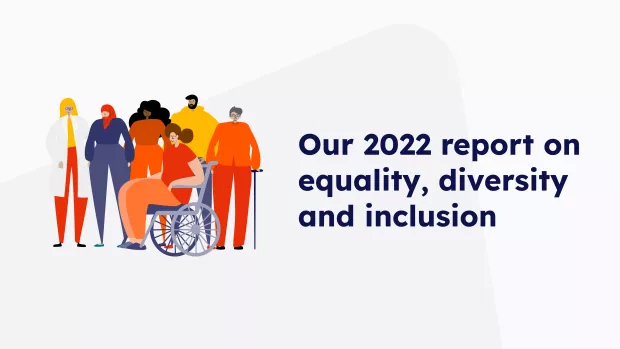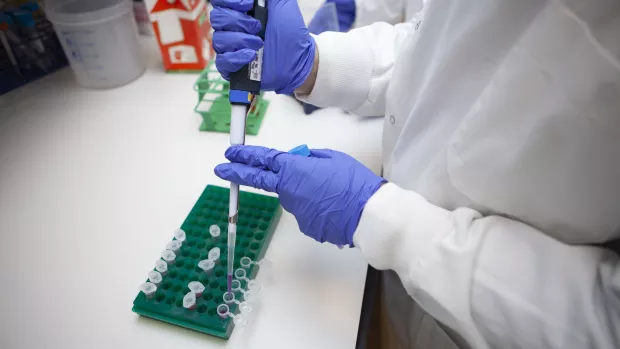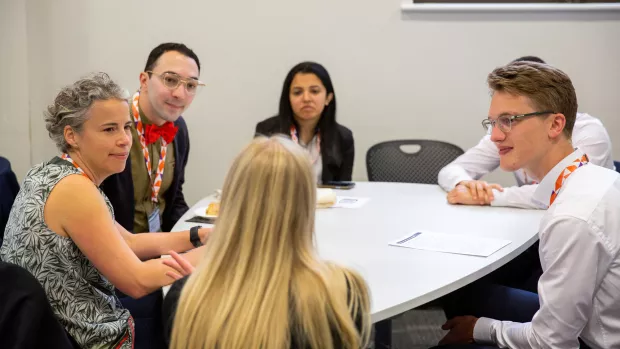
Diversity and inclusion in MS research is overdue – and we’re doing something about it
As an organisation we’ve launched a new strategy to become more diverse and inclusive. But we know research has some unique challenges. So we’ve developed a plan to tackle them.
MS doesn’t discriminate. It can affect people of any background, age, gender or ethnicity. So to understand it and treat it, research must apply to everyone with MS whoever they are.
But at the moment there’s a lack of diversity in people taking part in, shaping, and doing research. So our current understanding of MS is largely based on a highly un-diverse group. Not everyone is reaping the practical benefits of being part of a research study. And we could be missing out on bright ideas if we don’t support researchers from diverse backgrounds.
We want to make it easier for people from the whole MS community to take part in MS research. Without diversity, findings might not be helpful for everybody.
With the help of researchers and learnings from other research charities, we’ve developed an action plan to improve equality, diversity and inclusivity in MS research.
1. Who takes part in MS research
Similar to research into other conditions, MS studies have mostly involved White people. But we know Black people and those from other ethnic backgrounds have a similar risk of developing MS.
We also know most people who take part in drug trials are from a higher socioeconomic background. But what about people who aren’t able to take time off work to take part in trials, or find child care? They should be able to experience the benefits of taking part in trials. Like having more contact with healthcare professionals. Or additional MRI scans.
Our plan includes:
- Identifying the barriers that could prevent people from ethnic minorities and lower socioeconomic groups taking part in research
- Improving our communication about research studies to reach people from more diverse communities
- Asking our researchers to demonstrate what they’re doing to recruit people from a diverse range of backgrounds
2. Who shapes MS research
Which research we fund, and our research strategy, is decided by panels of research experts and our Research Network. The Research Network, which is made up of people affected by MS, also provide advice to researchers designing studies.
We need to increase the diversity of these groups so the needs of all communities are voiced when funding or designing research studies. Our plan includes:
- Removing barriers to signing up to the Network, for example consider where opportunities are advertised and offer payment for time
- Collecting data on location, career status and sexual orientation of members to make sure we have more diverse representation
- Adding an equality, diversity and inclusion officer role to our committees
3. Who does MS research
We see a lack of diversity in the MS researchers we fund too. Most people who apply for our funding are White. Career progression can be more difficult for people from ethnic minorities, or those wanting to take career breaks to have a family.
We could be missing out on future leaders in MS research. And more diversity in MS researchers could drive new developments and innovation. And improve the quality and inclusivity of research.
We will:
- Develop our policy on more flexible research careers including part-time positions, maternity, paternity, adoption and carer leave
- Identify new ways to communicate opportunities to under-represented groups of researchers
- Tell the story of researchers from under-represented groups to highlight it as a possible career path
First steps
By taking these crucial actions, we believe we’ll fund and support more diverse and inclusive research. And we’ve already made a start.
For people with more advanced MS we’re co-funding ChariotMS, which offers people who’ve never had the option to take part in a trial, that opportunity.
We’re also co-funding a project asking which genes in people from different ancestral backgrounds might be linked to MS.
Our initial focus now is collecting more data and evidence so we can better understand the barriers we need to tackle. As this landscape changes, we’ll continue to update our action plan to make sure MS research becomes the diverse and inclusive space it needs to be.




